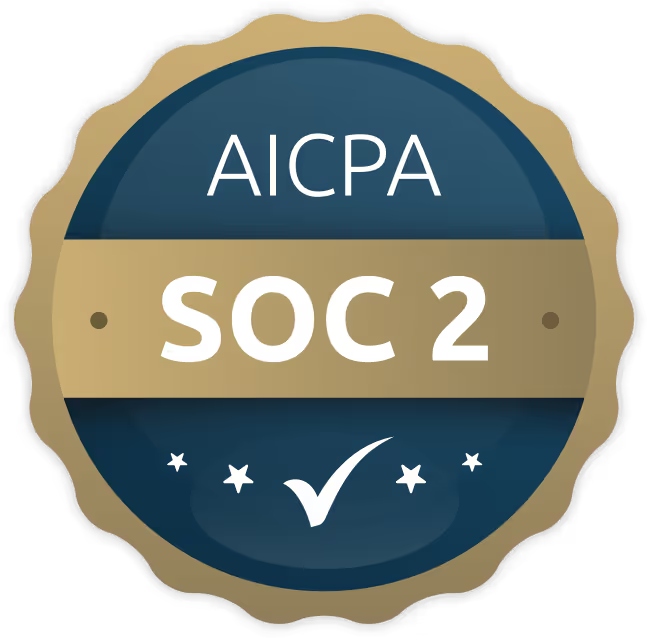
This post was updated January 2025
Hiring the right talent can often feel like finding a needle in a haystack. Imagine sifting through countless resumes, conducting interviews, and making decisions based on gut feelings or limited data—only to wonder months later if it was the right choice.
But what if there was a clear, measurable way to predict and evaluate candidates before and after hiring? That’s where the quality of hire metric comes into play.
In this post, you’ll learn how to calculate quality of hire effectively and discover four proven tips for improving the likelihood of recruiting top performers.
What Is Quality of Hire?
Quality of hire (QoH) measures a new employee’s value to an organization. This metric can look at how well a hire performs in their role, how they contribute to the team, or how aligned they are with the company’s culture and goals.
QoH is one of the most crucial metrics for high-volume recruiting organizations, as bad hires can negatively impact team productivity, retention, and overall business success. It’s no wonder LinkedIn research suggests it’s the number one topic that will shape recruiting over the next five years.

While metrics like time-to-hire, time-to-fill, or acceptance rate focus on the efficiency of the hiring process, quality of hire is superior because it focuses on outcomes. It’s not just about how quickly recruiters can hire someone but how effective that hire is in the long run.
The tricky thing is that measuring “quality” looks different for every company and industry. Consider these two scenarios:
- A warehouse may determine quality by how quickly a new hire reaches full productivity—perhaps via handling a certain number of packages per hour
- A software engineer may need to complete a project or an entire product development cycle, which could take months. Instead, hiring managers may choose to assess the number of bugs fixed or features successfully deployed to give a more solid quality indicator within the first three months.
Quality of hire also combines pre-hire metrics (e.g., interview and candidate assessment scores) and post-hire metrics (e.g., performance reviews and retention rates).
For example, hiring teams may score a candidate’s problem-solving skills during the interview process. Three months later, that same employee’s performance review will assess how they actually fix complex real-world issues.
By connecting these two types of insights, recruiters get a complete picture of whether their hiring decisions truly deliver value.
How to Calculate Quality of Hire
Calculating quality of hire boils down to one question: “What do we want to improve about our hiring processes by measuring this metric?”
To calculate QoH, start by identifying key quality indicators. These might include hard skills (e.g., technical proficiency), soft skills (e.g., communication or teamwork), or performance outcomes (e.g., time-to-productivity or retention rates).
Each indicator should be measurable and relevant to your goals—what you want to improve about your hiring processes. Then, use the formula:
Indicator % + Indicator % + Indicator % ÷ Number of Indicators = Quality of Hire %
(In the following sections, we’ll discuss this calculation in more detail and explain how to gather the data to measure it accurately.)
Here are four steps to calculate quality of hire:
1. Determine Your Indicator Metrics
Indicator metrics are measurable representations of the qualities and skills that define a role’s success. They start as broader indicators (e.g., problem-solving abilities or clear communication), which teams then quantify into actionable metrics.
Instead of relying on vague or subjective measures, indicator metrics create a clear, fair, and consistent framework for identifying what quality looks like in a role.
These metrics will be different for every company. It can be as simple as how long a new hire takes to become fully effective (i.e., ramp-up time). Other quality-of-hire measures may be more related to employee engagement (i.e., how invested they are in the company’s success).
Indicator metrics are often also linked to hard and soft skills in the workplace. For example, a tech company might correlate coding expertise with quality. On the other hand, a contact center might prioritize empathetic agents with excellent communication skills.
To determine a role’s indicator metrics, figure out the proficiencies that indicate a quality hire. For instance, here are five crucial skills for a frontline customer service role:
- Empathy and emotional intelligence—critical for customer support and satisfaction
- Problem-solving abilities resolve issues more efficiently
- Clear communication ensures customers understand solutions
- Building rapport creates trust between customers and brands
- Probing helps agents ask the right questions to understand issues better
Consider organizational priorities and how much each responsibility impacts success in the role when determining these indicators.
2. Gather Your Data
Collect the data for each indicator metric and split it into pre-hire and post-hire. This division helps teams pinpoint which process stage needs improvement to avoid bad hires and consistently bring in top performers.
Hiring teams can gather data from the systems and platforms they already use to manage recruitment and employee performance. For example:
- Applicant tracking systems manage candidate resumes and interview evaluations
- Talent relationship management software logs interactions with candidates during recruitment
- Pre- and post-hire assessments gauge skills and personality during and after hiring
- Employee performance management systems track post-hire reviews, goal completion, and other recruiting metrics
Here’s an example of employee success software that automatically scores performance and role-relevant competencies:

Teams can also gather data from any other system or method they use to hire employees (e.g., interviews and role-playing) or evaluate them after onboarding (e.g., customer satisfaction surveys, team feedback, or call monitoring).
Separating these evaluations helps determine how talent acquisition or onboarding impacts hire quality. For example, candidates chosen through a skills-based assessment may perform better in their roles, while those without a structured onboarding process take longer to reach full productivity.
3. Calculate Quality of Hire
To work out quality of hire, teams must create a scorecard to ensure a clear and consistent evaluation framework. The QoH formula can then be accurately applied by converting each indicator metric into a percentage.
Organizations can also calculate QoH using single metrics if that’s how they determine quality (e.g., a hiring manager satisfaction survey as one percentage).
Let’s say a “high-quality hire” at a company is one who becomes quickly effective in their role. If a new hire takes 30 days to become effective within a 90-day probationary period, subtract the time taken to become effective from the total period and use the formula: (90−30) ÷ 90 × 100 = 67%.
If using job responsibilities, develop a rating system using a five-point scale for qualitative feedback—for example, one (needs improvement) to five (exceptional) for each job responsibility.
Turn each score out of five into a percentage (e.g., one = 20%, four = 80%). Teams can even give half points, such as 1.5 = 30% and 4.5 = 90%. Let’s say a customer support candidate scores the below through interviews, assessments, and role-play:
- Empathy: 80%
- Problem-solving: 70%
- Communication: 90%
- Building rapport: 60%
- Probing: 70%
Use the QoH formula to determine the pre-hire quality of hire score. The higher the percentage, the more high-quality the hire. In this case, 80% + 70% + 90% + 60% + 70% ÷ 5 = 74%.
The example scorecard could look like this:

Use the same method to calculate post-hire QoH scores so that each new hire has two separate metrics. Adding both percentages and dividing by two will also result in one overall quality of hire score.
4. Standardize Evaluation Criteria
Standardizing how teams evaluate new hires ensures a fair and consistent process to identify strengths and areas for improvement. This approach allows recruiters to compare results across roles and departments more effectively, resulting in higher-quality hiring decisions.
To give new hires the best chance at success, gauge job performance regularly (especially during the early days) by:
- Conducting informal check-ins every day during the first week to address immediate questions and challenges
- Transitioning to weekly reviews for the first three months to monitor progress, provide guidance, and ensure the hire is settling into the role
- Doing a formal performance review at the three-month mark to assess initial goals and set expectations for the remainder of the year
Create a standardized set of questions for each role to ensure the company evaluates candidates against the same criteria. Structured interviews also reduce bias and allow for fairer comparisons.
Establishing benchmarks based on historical data and industry standards is also helpful. For example, if top performers typically achieve full productivity within 60 days, use that as a benchmark to assess new hires. Regularly update these benchmarks to reflect evolving organizational goals and market trends.
Why Is Calculating Quality of Hire So Crucial?
“Quality” is a subjective concept—every business defines it differently based on its goals and values. This can make it challenging to measure consistently.
However, taking the time to calculate quality of hire can provide immense value to an organization. Here’s why:
- Optimize recruitment strategies. By identifying what makes a hire successful, organizations can refine recruitment processes to focus on crucial traits and skills. This attracts candidates more likely to thrive in the role, saving time and resources on future hiring cycles. Talent pools increase by 10x when using a skills-first approach.
- Reduce turnover. High turnover is costly and disruptive. Some 85% of HR professionals view talent retention as a top-10 organizational priority, while 62% consider it a top-three priority. Calculating quality of hire allows companies to spot patterns in successful hires and replicate them. This ensures new employees are a better fit for the role and company culture, leading to lower turnover rates.
- Enhance team performance. Quality hires have a ripple effect on the entire team. Top talent can boost overall productivity, collaboration, and morale. Measuring quality of hire helps recruiters build a high-performing team that can consistently meet or exceed organizational goals.
- Justify recruitment investments. Recruitment can be expensive, and stakeholders often want a clear return on investment. We found that the average cost of a single bad hire (determined in a sample company of more than 100,000 employees) can be around $14,900. Calculating QoH provides measurable data to show how recruitment strategies directly contribute to business success.
Determining the quality of new hires is even more crucial for high-volume recruiters who need to fill multiple roles quickly. In fact, the top challenge for 60% of volume hiring teams is too many low-quality candidates.

Hiring the wrong candidates at scale can strain teams and increase operational inefficiencies. Without a clear framework, it’s easy to get lost in subjective judgments or incomplete metrics that fail to reflect the efficiency of hiring processes.
3 Challenges When Measuring Quality of Hire
Measuring quality of hire might seem straightforward, but recruitment teams often encounter complications. From defining “quality” in measurable terms to dealing with scattered data sources, these hurdles can make it difficult to gain clear, valuable insights.
Here are three common challenges recruitment teams face when assessing QoH:
1. No One-Size-Fits-All Metric
Without a universal definition, “quality” can mean different things to different organizations. Some may emphasize cultural fit (i.e., how well a new hire aligns with company values and work style). For others, the focus might be on measurable performance metrics (e.g., productivity or achieving specific KPIs).
The lack of a standardized approach means each recruitment team has different priorities, leading to inconsistent metrics that make comparing and benchmarking difficult.
2. Scattered Data
Key information often lives in silos. For example, HR software tracks initial applicant details and candidate progress, performance reviews provide insights into long-term employee success, and onboarding systems document training and early adjustments.
Without centralized data, getting a complete picture of a new hire’s performance and evaluating their overall quality can take much longer.
3. Manual Calculations Can Get Confusing
Using manual processes to track and calculate key metrics (e.g., time-to-productivity, employee retention rates, and performance ratings) can become time-consuming and error-prone.
Converting qualitative feedback into quantitative scores (like percentages) requires careful attention. Even minor mistakes can lead to skewed results and undermine the accuracy of quality of hire evaluations.
The complexity increases when multiple metrics with varying weights of importance are involved (e.g., determining “empathy” holds more weight in a quality hire than “probing”).
4 Ways to Improve Quality of Hire
Hiring top performers isn’t about luck—it’s about refining processes to identify and attract high-quality candidates consistently. By focusing on the right strategies, organizations can enhance each hire’s impact and set themselves up for long-term success.
Here are four ways companies can improve quality of hire:
1. Focus on Skills-Based Hiring
Skills-based hiring assesses a candidate’s abilities rather than relying solely on degrees or experience. This superior method often provides a more accurate picture of whether someone will excel in a role, especially when evaluating soft skills like communication and problem-solving.
Being able to pass a standardized language test can still result in poor performance. And that’s because these tests don’t actually measure what matters (skills).
Pre-hiring assessments can help identify the right candidates with the best skills for the job. They can simulate voice or live chat customer interactions to evaluate candidates’ fluency and soft skills.
Here’s one example of an open-ended chat simulation:

And here are the real-time scores recruiters see on their dashboards (already quantified by artificial intelligence to save manual calculations):

Unlike traditional tests, these data-driven tools focus on practical, role-specific abilities. That way, teams can hire the best candidates who will actually deliver results. Highly skilled representatives are also 27 times less likely to attrit than lower-skilled hires.
In addition to making the process far simpler for hiring teams, hiring assessment testing improves candidate experiences to create a stronger employer brand that attracts top talent.
2. Refine Job Descriptions
A clear, well-crafted job description is key to attracting the right candidates. It should outline the role’s critical skills, responsibilities, and expectations. On the other hand, vague or overly generic descriptions often lead to mismatched hires.
Here are three tips to make job description templates more effective:
- Highlight practical skills and qualities rather than generic degree requirements
- Use concrete examples of day-to-day tasks to help candidates understand the role
- Include what makes your organization unique to attract applicants who align with your values
It’s also good practice to involve current team members when creating job postings. Their insights can help identify essential skills and responsibilities, ensuring the role is accurately represented. Opening up that conversation could also result in personal referrals from employees for other qualified candidates.
3. Enhance Onboarding Processes
Structure onboarding to help employees quickly adapt to their roles and integrate into the team. A solid process sets new hires up for success and helps them feel supported from day one.
Post-hire assessments can also significantly improve onboarding. These evaluations provide insights into how well a new employee adjusts and highlight areas where they might need additional training.
Team members work through real-world scenarios tailored to their roles. For instance, a customer service applicant will deal with resolving complaints or building caller rapport.

These on-the-job simulations and open-ended questions make it easy to practice and apply skills like:
- Communicating effectively over chat, email, and phone
- Responding positively and confidently
- Paying more attention to details
- Handling difficult conversations
New hires can brush up their skills anytime to help them handle the challenges of their role and reinforce what they learned during onboarding.
4. Regularly Reassess Metrics
Your quality of hire metrics should evolve alongside your organization. Periodically reviewing these indicators ensures they align with the company’s goals and reflect any changes in industry standards.
For example, a skill once critical in a role (e.g., proficiency in a specific software) may no longer be as crucial if new tools or automation replace it. Similarly, the rise of AI may mean teams begin to prioritize data analysis or adaptability in hiring decisions.
To reassess your metrics, review key performance data, gather feedback from hiring managers, and consider how each metric contributes to hiring decisions. This will help to keep candidate evaluations relevant and actionable.
Wrapping Up Quality of Hire
Calculating quality of hire is subjective—what defines “quality” widely varies from one organization to the next. However, you can create a tailored framework that helps your business maintain consistency in its evaluations over time.
The key to making this process easier? Pinpointing quality at the pre-hiring stage. Instead of relying solely on degrees or years of experience, focus on people’s skills. By prioritizing proven abilities early on, you’ll recruit candidates who not only meet qualifications on paper but prove they can excel in the role from day one.
Image Credits
Feature Image: Via Unsplash/Sebastian Hermann
Image 1: Via LinkedIn
Image 2: Via ThriveSparrow
Image 3: Via HR.com
Image 4–6: Property of HiringBranch. Not to be reproduced without permission.










































.jpg)

.jpg)


























.avif)




.avif)
.avif)






























.webp)





.svg)
